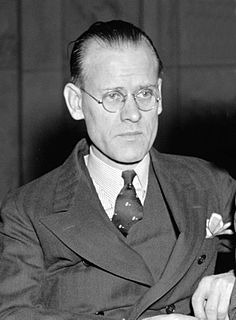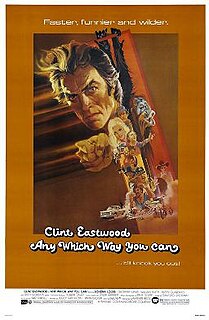Related Research Articles

Caligula was the third Roman emperor, ruling from 37 to 41. The son of the popular Roman general Germanicus and Augustus's granddaughter Agrippina the Elder, Caligula was born into the first ruling family of the Roman Empire, conventionally known as the Julio-Claudian dynasty. Germanicus' uncle and adoptive father, Tiberius, succeeded Augustus as emperor of Rome in 14.

Philo Taylor Farnsworth was an American inventor and television pioneer. He made many crucial contributions to the early development of all-electronic television. He is best known for his 1927 invention of the first fully functional all-electronic image pickup device, the image dissector, as well as the first fully functional and complete all-electronic television system. Farnsworth developed a television system complete with receiver and camera—which he produced commercially through the Farnsworth Television and Radio Corporation from 1938 to 1951, in Fort Wayne, Indiana.

Philo-Semitism or Judeophilia is an interest in, respect for and an appreciation of Jewish people, their history and the influence of Judaism, particularly on the part of a gentile. Within the Jewish community, philo-Semitism includes an interest in Jewish culture and a love of things that are considered Jewish.

Philo of Alexandria, also called Philo Judaeus, was a Hellenistic Jewish philosopher who lived in Alexandria, in the Roman province of Egypt.
Philo was a leading writer of the Hellenistic Jewish community in Alexandria, Egypt. He wrote expansively in Koine Greek on the intersection of philosophy, politics, and religion in his time, specifically he explored the connections between Greek Platonic philosophy and late Second Temple Judaism. For example, he maintained that the Septuagint and Jewish law are a blueprint for the pursuit of individual enlightenment.
Sanchuniathon, also known as Sanchoniatho the Berytian, is the purported Phoenician author of three lost works originally written in the Phoenician language and surviving only in partial paraphrase and summary of a Greek translation by Philo of Byblos, according to the Christian bishop Eusebius. These few fragments comprise the most extended literary source concerning Phoenician religion in either Greek or Latin: Phoenician sources, along with all of Phoenician literature, were lost with the parchment on which they were written.
Philo of Byblos, also known as Herennius Philon, was an antiquarian writer of grammatical, lexical and historical works in Greek. He is chiefly known for his Phoenician history assembled from the writings of Sanchuniathon.
Philo Vance is a fictional character featured in 12 crime novels written by S. S. Van Dine, published in the 1920s and 1930s. During that time, Vance was immensely popular in books, movies, and on the radio. He was portrayed as a stylish, even foppish dandy; a New York bon vivant possessing a highly intellectual bent. The novels were chronicled by his friend Van Dine.

The Scorpion King is a 2002 American historical fantasy action film directed by Chuck Russell, starring Dwayne "The Rock" Johnson, Kelly Hu, Grant Heslov, and Michael Clarke Duncan. It is a prequel of The Mummy franchise, which acts as a prologue as it takes place before the events of The Mummy and tells the story of Mathayus and his rise to become the legendary Scorpion King. The film marks Johnson's first lead role.

Philo is a census-designated place in Mendocino County, California. It is located 5.5 miles (9 km) northwest of Boonville, at an elevation of 331 feet. The population was 349 at the 2010 census.
Philo of Larissa was a Greek philosopher. He was a pupil of Clitomachus, whom he succeeded as head of the Academy. During the Mithridatic wars which would see the destruction of the Academy, he travelled to Rome where Cicero heard him lecture. None of his writings survive. He was an Academic sceptic, like Clitomachus and Carneades before him, but he offered a more moderate view of scepticism than that of his teachers, permitting provisional beliefs without certainty.

The Philomathean Society of the University of Pennsylvania is a collegiate literary society, the oldest student group at the university, and a claimant to the title of the oldest continuously-existing literary society in the United States. Founded in 1813, its goal is "to promote the learning of its members and to increase the academic prestige of the University." Philomathean is derived from the Greek philomath, which means "a lover of learning." The motto of the Philomathean Society is Sic itur ad astra.

The Jewish–Roman wars were a series of large-scale revolts by the Jews of the Eastern Mediterranean against the Roman Empire between 66 and 135 CE. While the First Jewish–Roman War and the Bar Kokhba revolt were nationalist rebellions, striving to restore an independent Judean state, the Kitos War was more of an ethno-religious conflict, mostly fought outside Judea Province. Hence, some sources use the term Jewish-Roman Wars to refer only to the First Jewish–Roman War and the Bar Kokhba revolt, while others include the Kitos War as one of the Jewish–Roman wars.

Every Which Way but Loose is a 1978 American action comedy film released by Warner Bros., produced by Robert Daley and directed by James Fargo. It stars Clint Eastwood in an uncharacteristic and offbeat comedy role as Philo Beddoe, a trucker and brawler roaming the American West in search of a lost love while accompanied by his brother/manager, Orville, and his pet orangutan, Clyde. In the process, Philo manages to cross a motley assortment of characters, including a pair of police officers and an entire motorcycle gang, who end up pursuing him for revenge.
Antiochus of Ascalon was an Academic philosopher. He was a pupil of Philo of Larissa at the Academy, but he diverged from the Academic skepticism of Philo and his predecessors. He was a teacher of Cicero, and the first of a new breed of eclectics among the Platonists; he endeavoured to bring the doctrines of the Stoics and the Peripatetics into Platonism, and stated, in opposition to Philo, that the mind could distinguish true from false. In doing so, he claimed to be reviving the doctrines of the Old Academy. With him began the phase of philosophy known as Middle Platonism.

Any Which Way You Can is a 1980 American action comedy film directed by Buddy Van Horn and starring Clint Eastwood, with Sondra Locke, Geoffrey Lewis, William Smith, and Ruth Gordon in supporting roles. The film is the sequel to the 1978 hit comedy Every Which Way but Loose.

Dialogues Concerning Natural Religion is a philosophical work by the Scottish philosopher David Hume. Through dialogue, three philosophers named Demea, Philo, and Cleanthes debate the nature of God's existence. Whether or not these names reference specific philosophers, ancient or otherwise, remains a topic of scholarly dispute. While all three agree that a god exists, they differ sharply in opinion on God's nature or attributes and how, or if, humankind can come to knowledge of a deity.
The Alexandrian pogrom, or Alexandrian riots, were attacks directed against Jews in 38 CE in Roman Alexandria, Egypt.
Philo the Dialectician was a dialectic philosopher of the Megarian school. He is sometimes called Philo of Megara although the city of his birth is unknown. He is most famous for the debate he had with his teacher Diodorus Cronus concerning the idea of the possible and the criteria of the truth of conditional statements.

Carnival Row is an American neo-noir fantasy web television series created by René Echevarria and Travis Beacham that premiered on Amazon Prime Video on August 30, 2019. The series stars Orlando Bloom, Cara Delevingne, Simon McBurney, Tamzin Merchant, David Gyasi, Andrew Gower, Karla Crome, Arty Froushan, Indira Varma, and Jared Harris. In July 2019, it was announced that Amazon had renewed Carnival Row for a second season.
References
- ↑ St. Philo and Agathopodes Catholic Online
| This article about a saint is a stub. You can help Wikipedia by expanding it. |